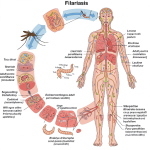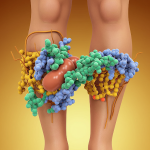طب اسلامی: روحانی شفا کا مقدس فن
طب اسلامی، روحانی شفا کا ایک قدیم اور مقدس فن ہے، جو قرآنی آیات اور تعویذات کے ذریعے روحانی امراض کا علاج کرتا ہے۔ یہ طب، جسمانی امراض کے ساتھ ساتھ، نفسیاتی، جذباتی اور روحانی مسائل کو بھی حل کرنے کی کوشش کرتی ہے۔ طب اسلامی کے پیروکار یہ مانتے ہیں کہ اللہ تعالیٰ نے قرآن مجید میں ہر بیماری کا علاج نازل کیا ہے، اور یہ کہ قرآنی آیات اور دعائیں روحانی شفا کا ذریعہ بن سکتی ہیں۔
تاریخ اور ارتقاء
طب اسلامی کی جڑیں اسلام کے ابتدائی دور میں ملتی ہیں۔ نبی کریم صلی اللہ علیہ وسلم نے خود بھی بعض اوقات دعاؤں اور قرآنی آیات کے ذریعے بیماروں کا علاج کیا۔ صحابہ کرام اور تابعین نے بھی اس روایت کو جاری رکھا۔ وقت گزرنے کے ساتھ ساتھ، مختلف اسلامی علماء اور صوفیاء نے طب اسلامی کے اصولوں اور طریقوں کو مرتب کیا۔ انہوں نے قرآنی آیات، دعاؤں، تعویذات اور دیگر روحانی طریقوں کو بیماریوں کے علاج کے لیے استعمال کیا۔
اصول اور مبادیات
طب اسلامی کے بنیادی اصول یہ ہیں:
توحید
اللہ تعالیٰ تمام بیماریوں کا شفا دینے والا ہے۔ قرآن اور سنت: قرآن مجید اور سنت نبوی صلی اللہ علیہ وسلم روحانی شفا کے بنیادی ذرائع ہیں۔ ایمان اور یقین: شفا کا انحصار اللہ تعالیٰ پر پختہ ایمان اور یقین پر ہے۔ روحانی طہارت: روحانی علاج کے لیے عامل اور مریض دونوں کا روحانی طور پر پاک ہونا ضروری ہے۔ دعا اور تضرع: اللہ تعالیٰ سے دعا اور تضرع کرنا شفا کا اہم ذریعہ ہے۔ تعویذات اور قرآنی آیات: تعویذات اور قرآنی آیات کا استعمال روحانی امراض کے علاج کے لیے کیا جاتا ہے۔ چلہ کشی اور ریاضت: روحانی طاقت حاصل کرنے کے لیے چلہ کشی اور ریاضت کی جاتی ہے۔
طریقہ علاج
طب اسلامی میں روحانی امراض کے علاج کے لیے مختلف طریقے استعمال کیے جاتے ہیں، جن میں شامل ہیں
قرآنی آیات کی تلاوت: بیمار شخص پر قرآنی آیات کی تلاوت کی جاتی ہے، یا پانی پر دم کرکے پلایا جاتا ہے۔ دعائیں اور اذکار: مختلف دعائیں اور اذکار پڑھ کر بیمار شخص پر دم کیا جاتا ہے۔ تعویذات: قرآنی آیات یا دعائیں لکھ کر تعویذات بنائے جاتے ہیں، جو بیمار شخص کے گلے میں ڈالے جاتے ہیں یا پانی میں گھول کر پلائے جاتے ہیں۔ چلہ کشی اور ریاضت: روحانی طاقت حاصل کرنے کے لیے عامل چلہ کشی اور ریاضت کرتا ہے۔ صدقہ اور خیرات: بیمار شخص کی طرف سے صدقہ اور خیرات کرنا بھی شفا کا ذریعہ بن سکتا ہے۔
روحانی امراض
طب اسلامی کے مطابق، روحانی امراض میں شامل ہیں:
جادو اور نظر بد: جادو اور نظر بد کے اثرات سے بچنے کے لیے قرآنی آیات اور تعویذات کا استعمال کیا جاتا ہے۔ جنات اور شیاطین: جنات اور شیاطین کے اثرات سے بچنے کے لیے قرآنی آیات اور دعاؤں کا استعمال کیا جاتا ہے۔ نفسیاتی امراض: ڈپریشن، اضطراب اور دیگر نفسیاتی امراض کے علاج کے لیے قرآنی آیات اور دعاؤں کا استعمال کیا جاتا ہے۔ جسمانی امراض: بعض جسمانی امراض کو بھی روحانی اسباب سے جوڑا جاتا ہے، اور ان کے علاج کے لیے قرآنی آیات اور دعاؤں کا استعمال کیا جاتا ہے۔
عامل کی شرائط
طب اسلامی کا عامل بننے کے لیے درج ذیل شرائط کا پورا ہونا ضروری ہے:
دینی علم: عامل کو قرآن مجید، سنت نبوی صلی اللہ علیہ وسلم اور اسلامی فقہ کا گہرا علم ہونا چاہیے۔ روحانی طہارت: عامل کا روحانی طور پر پاک ہونا ضروری ہے۔ تقویٰ اور پرہیزگاری: عامل کو تقویٰ اور پرہیزگاری اختیار کرنی چاہیے۔ اجازت: عامل کو کسی مستند عالم یا شیخ سے روحانی علاج کی اجازت حاصل ہونی چاہیے۔ چلہ کشی اور ریاضت: عامل کو روحانی طاقت حاصل کرنے کے لیے چلہ کشی اور ریاضت کرنی چاہیے۔
تنقید اور چیلنجز
طب اسلامی کو بعض حلقوں کی طرف سے تنقید کا نشانہ بنایا جاتا ہے۔ ناقدین کا کہنا ہے کہ روحانی علاج کے سائنسی ثبوت موجود نہیں ہیں۔ وہ یہ بھی کہتے ہیں کہ بعض عامل جادو ٹونے اور توہم پرستی کو فروغ دیتے ہیں۔
طب اسلامی کو درپیش چیلنجز میں شامل ہیں:
جعلی عامل: بہت سے جعلی عامل لوگوں کو دھوکہ دیتے ہیں۔
توہم پرستی: بعض لوگ طب اسلامی کو توہم پرستی کا ذریعہ بناتے ہیں۔ سائنسی ثبوت کی کمی: روحانی علاج کے سائنسی ثبوت کی کمی ہے۔
مستقبل
طب اسلامی کا مستقبل ان چیلنجز سے نمٹنے پر منحصر ہے۔ یہ ضروری ہے کہ مستند علماء اور عاملین طب اسلامی کے اصولوں اور طریقوں کو سائنسی تحقیق کے مطابق ڈھالیں۔ یہ بھی ضروری ہے کہ لوگوں کو جعلی عاملین سے بچایا جائے۔
نتیجہ
طب اسلامی، روحانی شفا کا ایک قدیم اور مقدس فن ہے، جو قرآنی آیات اور تعویذات کے ذریعے روحانی امراض کا علاج کرتا ہے۔ یہ طب، جسمانی امراض کے ساتھ ساتھ، نفسیاتی، جذباتی اور روحانی مسائل کو بھی حل کرنے کی کوشش کرتی ہے۔ تاہم، یہ ضروری ہے کہ لوگ طب اسلامی کے بارے میں درست معلومات حاصل کریں اور جعلی عاملین سے بچیں۔
Islamic Medicine: The Sacred Art of Spiritual Healing
Islamic medicine is an ancient and sacred art of spiritual healing that treats spiritual ailments through Quranic verses and amulets. This medicine seeks to address not only physical illnesses but also psychological, emotional, and spiritual issues. Followers of Islamic medicine believe that Allah Almighty has revealed a cure for every disease in the Holy Quran and that Quranic verses and prayers can be a source of spiritual healing.
History and Evolution
The roots of Islamic medicine can be traced back to the early days of Islam. The Prophet Muhammad (peace be upon him) himself sometimes treated the sick through prayers and Quranic verses. This tradition was continued by the companions and successors of the Prophet. Over time, various Islamic scholars and Sufis compiled the principles and methods of Islamic medicine. They used Quranic verses, prayers, amulets, and other spiritual methods to treat illnesses.
Principles and Foundations
The basic principles of Islamic medicine are:
- Tawhid (Oneness of God): Allah Almighty is the healer of all diseases.
- Quran and Sunnah: The Holy Quran and the Sunnah (teachings and practices) of the Prophet Muhammad (peace be upon him) are the primary sources of spiritual healing.
- Faith and Belief: Healing depends on strong faith and belief in Allah Almighty.
- Spiritual Purity: Both the healer and the patient must be spiritually pure for spiritual healing.
- Supplication and Prayer: Supplication and prayer to Allah Almighty are important sources of healing.
- Amulets and Quranic Verses: Amulets and Quranic verses are used to treat spiritual ailments.
- Spiritual Retreat and Disciplined Practices: Spiritual retreats and disciplined practices are performed to gain spiritual power.
Methods of Treatment
Various methods are used to treat spiritual ailments in Islamic medicine, including:
- Recitation of Quranic Verses: Quranic verses are recited over the sick person or blown onto water that is then drunk.
- Prayers and Invocations: Various prayers and invocations are recited and blown over the sick person.
- Amulets: Amulets containing Quranic verses or prayers are made and worn by the sick person or dissolved in water and drunk.
- Spiritual Retreat and Disciplined Practices: The healer performs spiritual retreats and disciplined practices to gain spiritual power.
- Charity: Giving charity on behalf of the sick person can also be a source of healing.
Spiritual Ailments
According to Islamic medicine, spiritual ailments include:
- Magic and Evil Eye: Quranic verses and amulets are used to protect against the effects of magic and the evil eye.
- Jinn and Devils: Quranic verses and prayers are used to protect against the effects of jinn and devils.
- Psychological Disorders: Quranic verses and prayers are used to treat depression, anxiety, and other psychological disorders.
- Physical Illnesses: Some physical illnesses are also attributed to spiritual causes, and Quranic verses and prayers are used to treat them.
Conditions for a Healer
The following conditions must be met to become a healer in Islamic medicine:
- Religious Knowledge: The healer must have a deep knowledge of the Holy Quran, the Sunnah of the Prophet Muhammad (peace be upon him), and Islamic jurisprudence.
- Spiritual Purity: The healer must be spiritually pure.
- Piety and Righteousness: The healer must be pious and righteous.
- Permission: The healer must have permission to practice spiritual healing from a qualified scholar or sheikh.
- Spiritual Retreat and Disciplined Practices: The healer must perform spiritual retreats and disciplined practices to gain spiritual power.
Criticism and Challenges
Islamic medicine is criticized by some circles. Critics argue that there is no scientific evidence for spiritual healing. They also say that some healers promote magic and superstition.
Challenges facing Islamic medicine include:
- Fake Healers: Many fake healers deceive people.
- Superstition: Some people use Islamic medicine as a source of superstition.
- Lack of Scientific Evidence: There is a lack of scientific evidence for spiritual healing.
Future
The future of Islamic medicine depends on addressing these challenges. It is important that qualified scholars and healers adapt the principles and methods of Islamic medicine to scientific research. It is also important to protect people from fake healers.
Conclusion
Islamic medicine is an ancient and sacred art of spiritual healing that treats spiritual ailments through Quranic verses and amulets. This medicine seeks to address not only physical illnesses but also psychological, emotional, and spiritual issues. However, it is important for people to obtain accurate information about Islamic medicine and to avoid fake healers.





